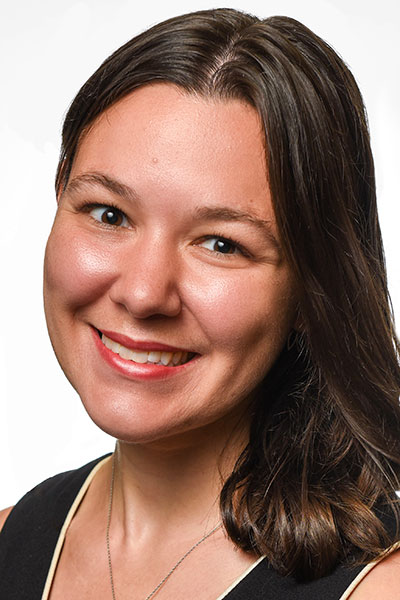Each individual forms a unique identity that combines internal factors (e.g., personality, goals) and external influences (e.g., lived experiences, others’ opinions). For those with diabetes, the disease becomes a fundamental part of identity—and a necessary factor to consider in understanding attitudes and behaviors toward diabetes management.

“An illness can profoundly impact one’s identity by posing additional illness-specific challenges,” said Elise Van Laere, Clinical Psychologist and PhD Candidate, KU Leuven, Belgium. “Illness identity, ways of relating one’s diabetes to one’s identity, helps explain why some individuals with diabetes experience more depressive symptoms and diabetes distress, whereas others experience more life satisfaction and better diabetes self-management.”
Ms. Van Laere will open Hiding in Plain Sight—The Need to Address Diabetes Identity in Order to Optimize Outcomes, on Saturday, June 21, from 8:00–9:30 a.m., in Room W181 A–C of the McCormick Place Convention Center. She will discuss responses to an illness identity questionnaire that explores multiple ways individuals relate to their diabetes, and the impact those have on diabetes-specific and psychosocial outcomes.

“Part of the process of managing and adjusting to an illness like diabetes is regulating how you think about yourself as a person with diabetes,” said Deborah Wiebe, PhD, MPH, Professor of Health Psychology and Director of the Health Sciences Research Institute at the University of California, Merced. “People are challenged to maintain, reestablish, or develop a positive sense of self that includes diabetes. There is a very rich literature on the phenomenology of people’s identity experiences when coping with and managing serious illness, but empirical research in diabetes is limited. It is one of those hidden things in research and diabetes care that is quite present in the lived experiences of people with diabetes.”
Persis Commissariat, PhD, CDCES, Clinical Psychologist at the Joslin Diabetes Center, and Assistant Professor of Psychology at Harvard Medical School, will discuss the process of integrating and maintaining a positive identity with diabetes, and why that matters.

“The degree to which someone positively incorporates diabetes into their identity likely affects not just their self-perception, but attitudes and behaviors toward diabetes,” Dr. Commissariat said. “When diabetes is challenging to incorporate into one’s identity, it results in poor glycemic and psychosocial outcomes.”
Dr. Commissariat will also discuss how using and wearing diabetes management technology may impact how people see themselves, just as identity may direct if and how people engage with these devices.

The symposium includes two clinician-researchers living with diabetes: Korey K. Hood, PhD, and Rebecca J. Vitale, MD, MPH.
Dr. Hood, Professor of Pediatrics and of Psychiatry and Behavioral Sciences, Stanford University, works across advocacy and service settings to promote awareness of diabetes treatments, their psychological impact, and emerging technologies.
“I struggled to manage my diabetes as an adolescent and young adult, and that inspired me,” said Dr. Vitale, Assistant Professor of Medicine and Pediatrics, University of North Carolina at Chapel Hill. “Over the years, diabetes has become completely integrated into my self-image, though I did struggle with having devices on my body as a teenager and young adult. I resisted using CGM (continuous glucose monitoring) because I didn’t like the idea of having yet another device on my body. I hope attendees come away with a better understanding of the importance of acceptance and integration of diabetes into oneself.”
On-demand access to recorded presentations will be available to registered participants following the conclusion of the 85th Scientific Sessions, from June 25–August 25.

Watch the Scientific Sessions On-Demand after the Meeting
Extend your learning on the latest advances in diabetes research, prevention, and care after the 85th Scientific Sessions conclude. From June 25–August 25, registered participants will have on-demand access to presentations recorded in Chicago via the meeting website.

